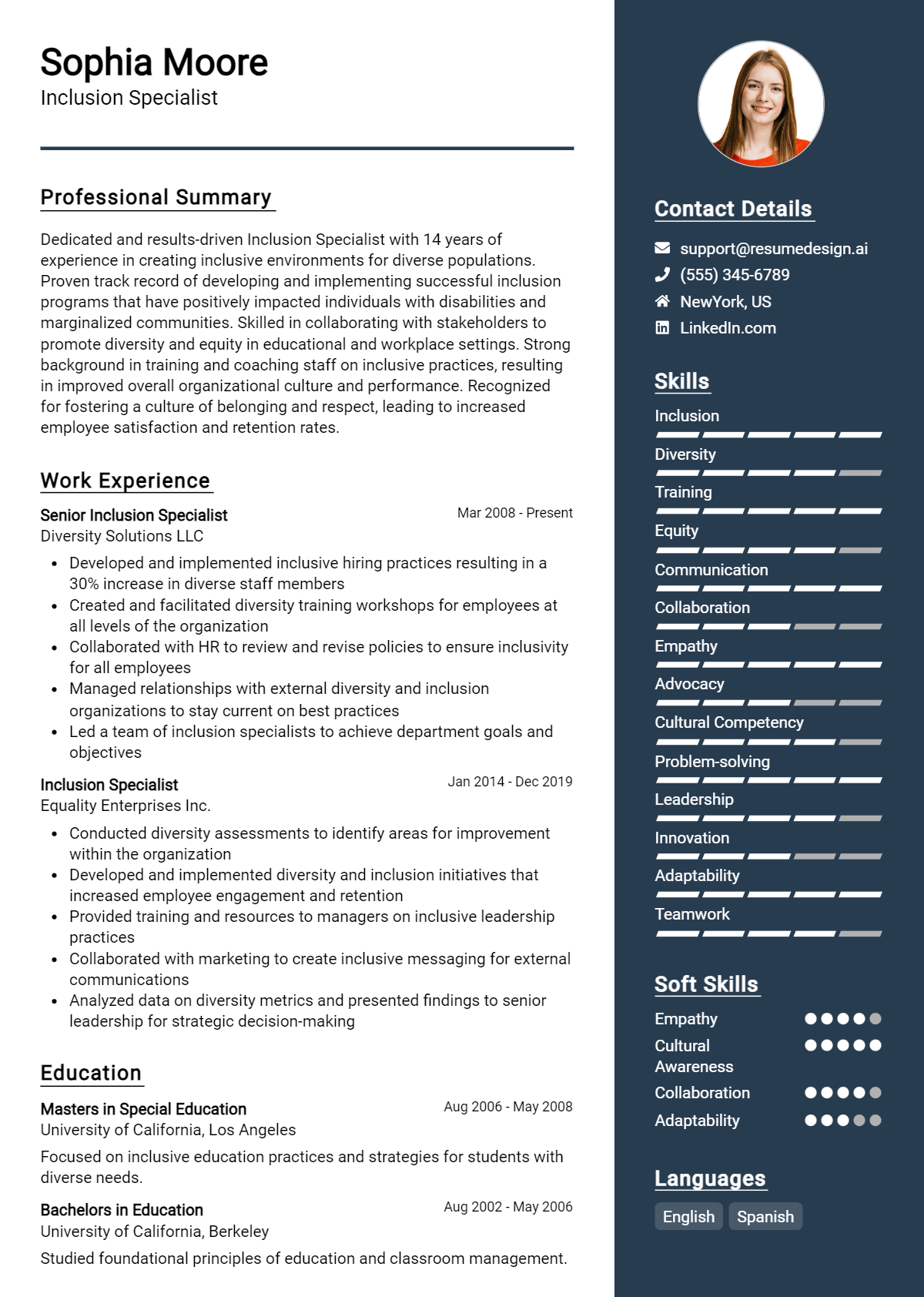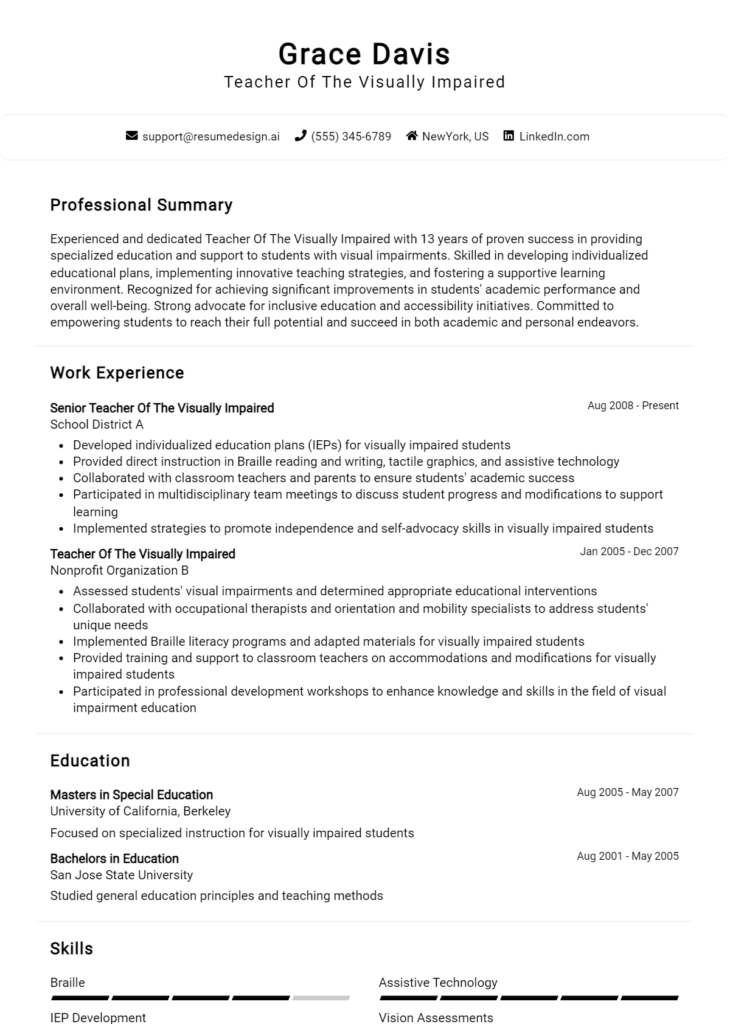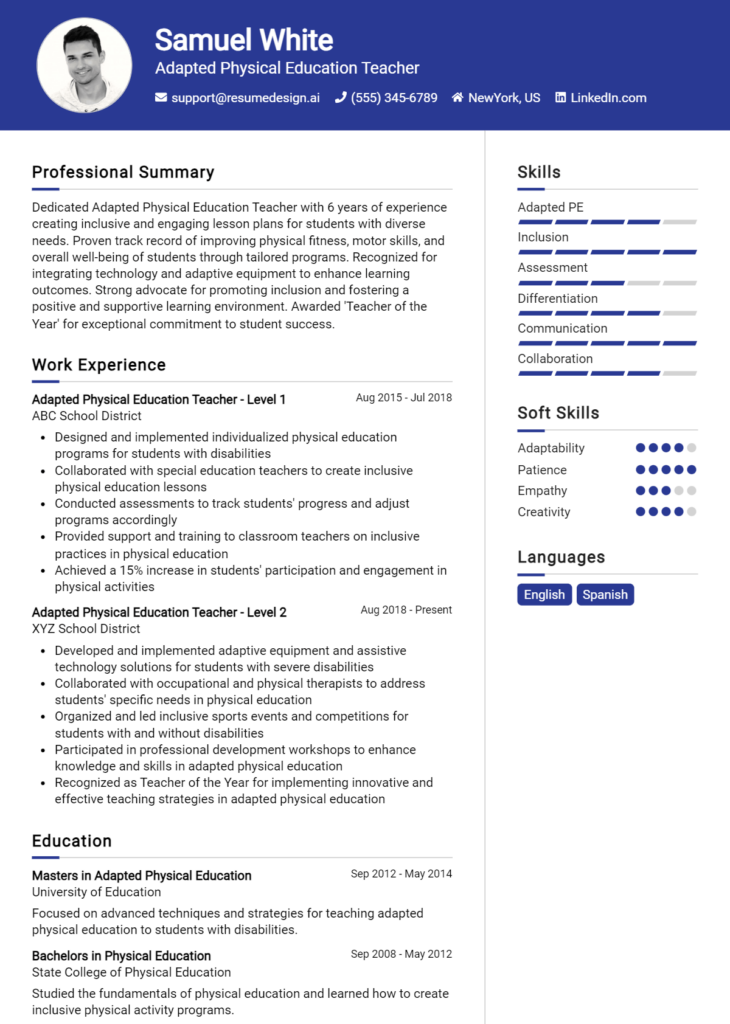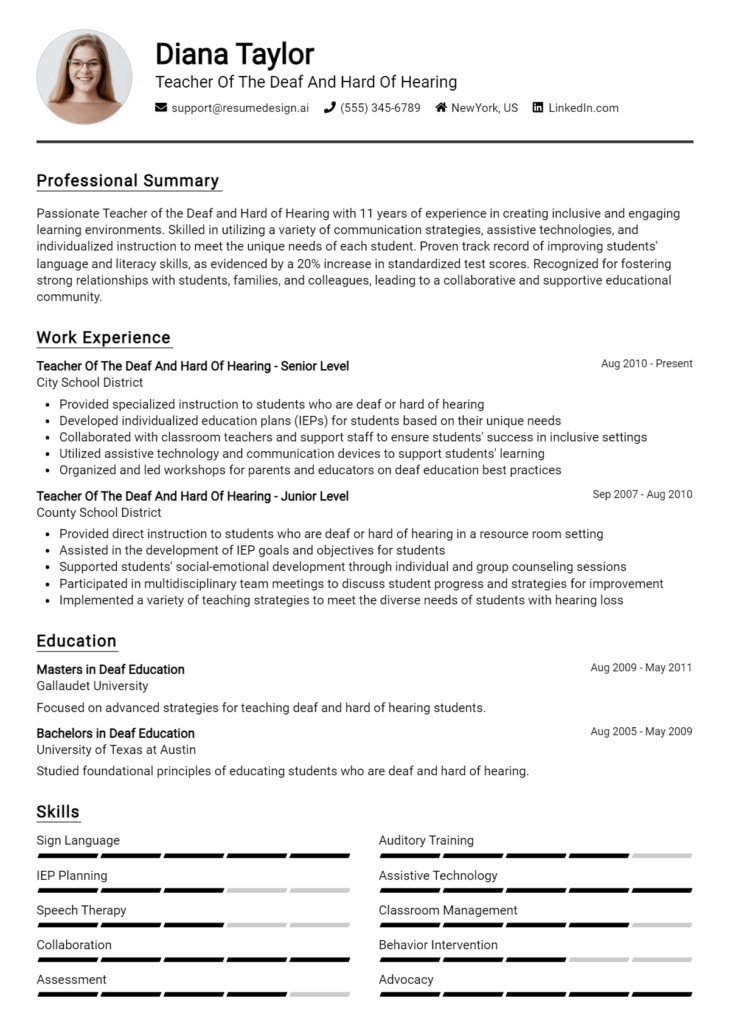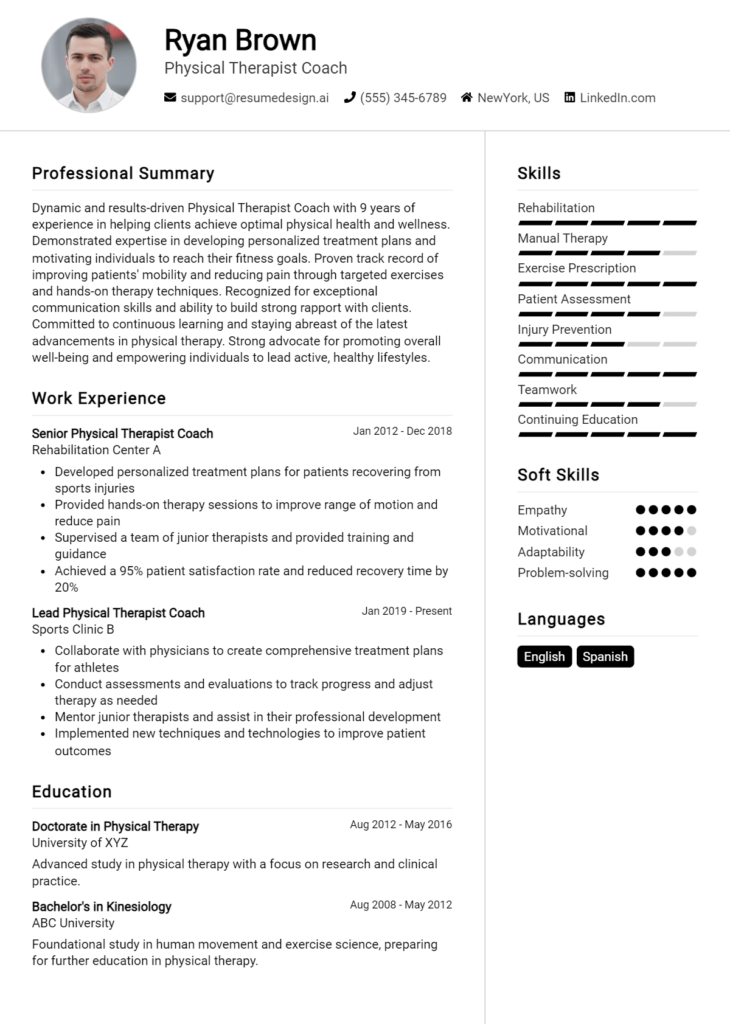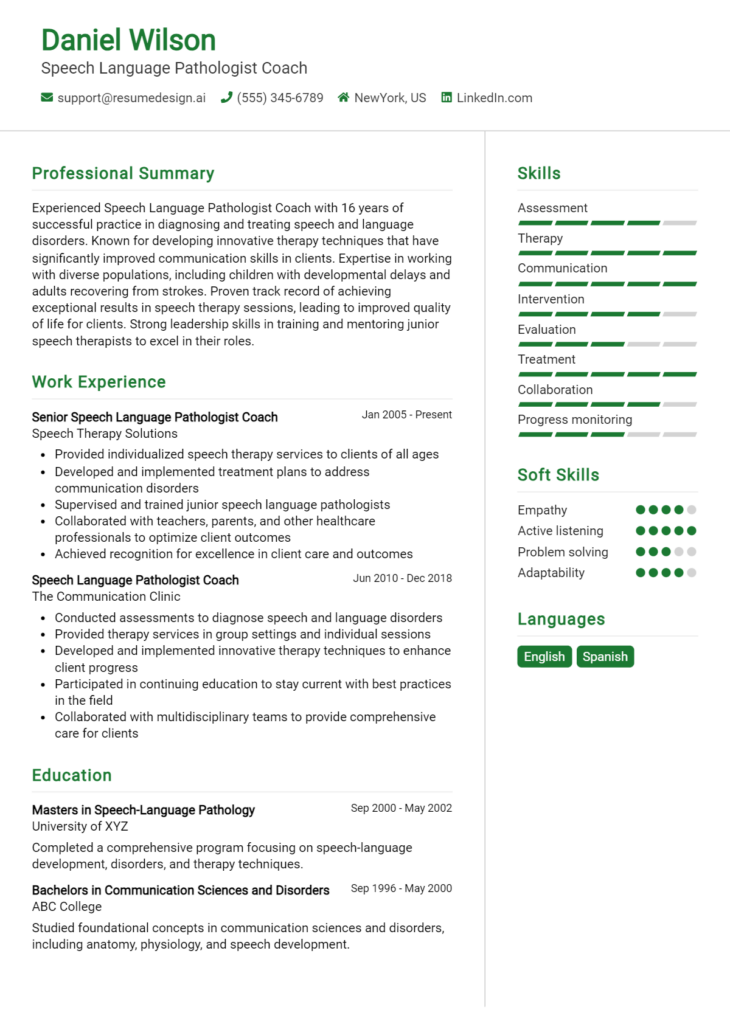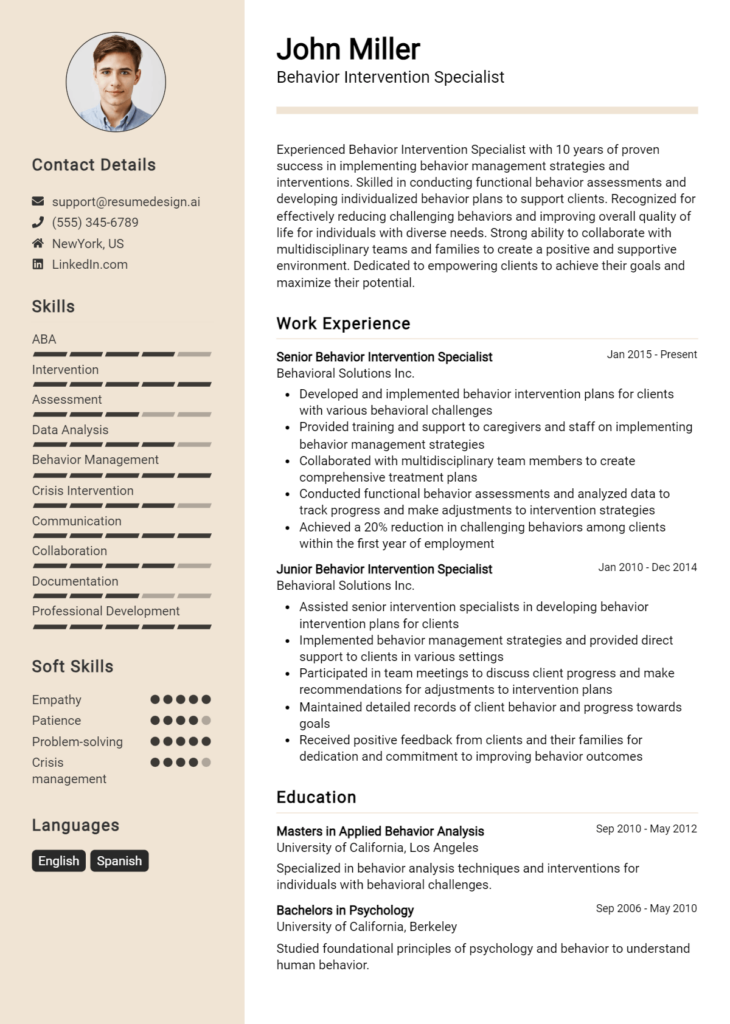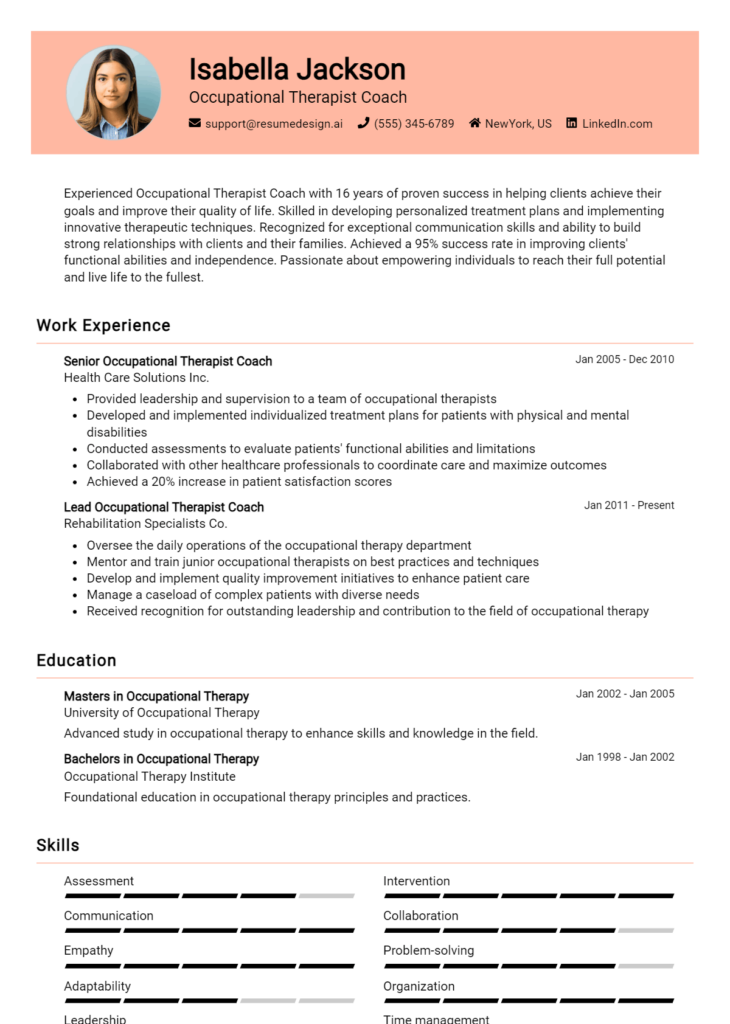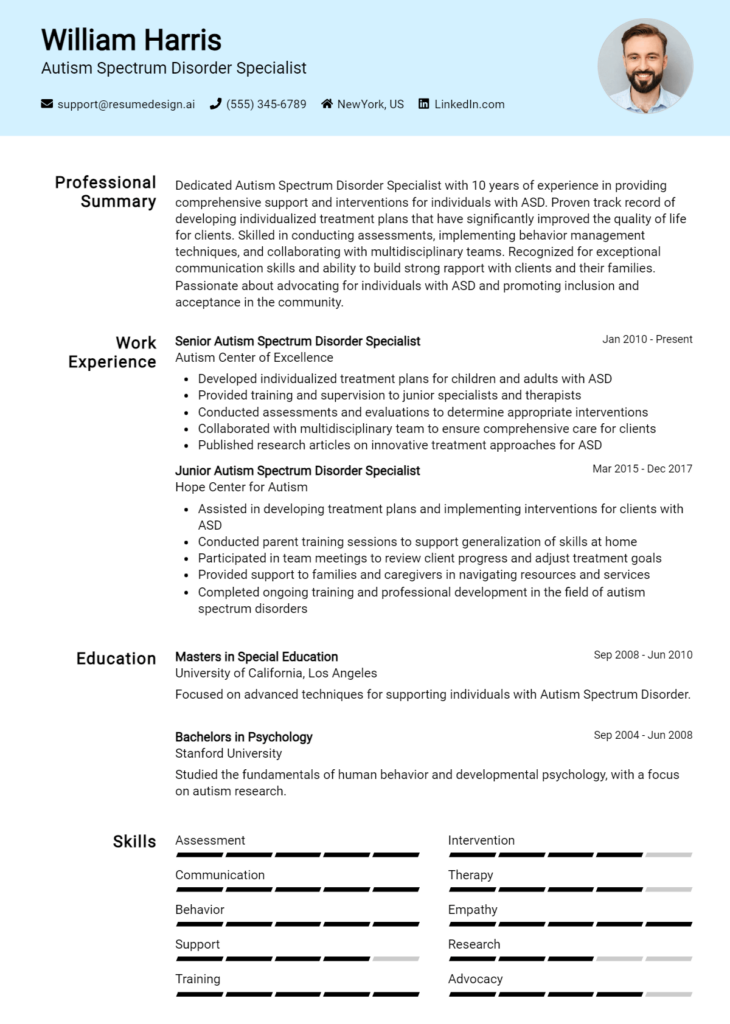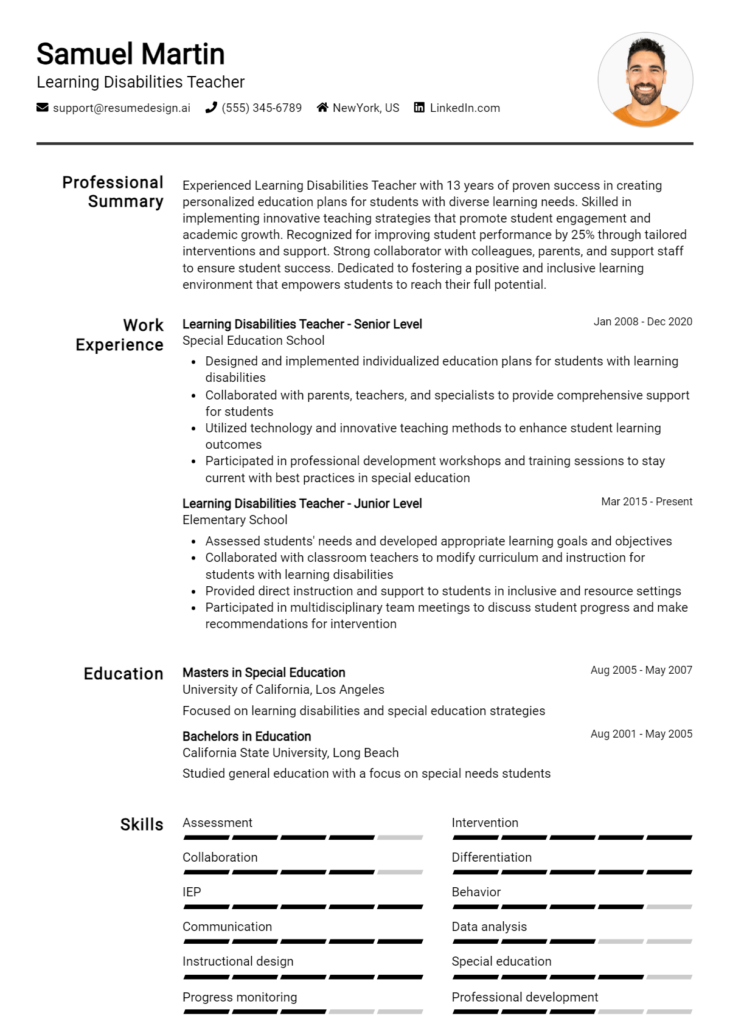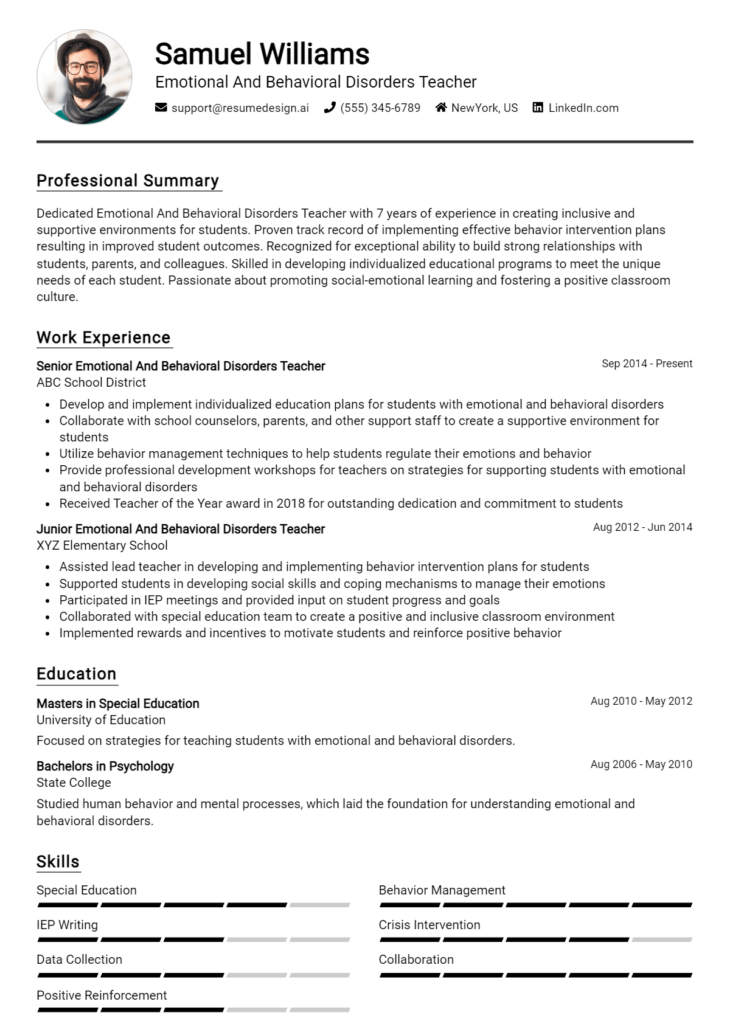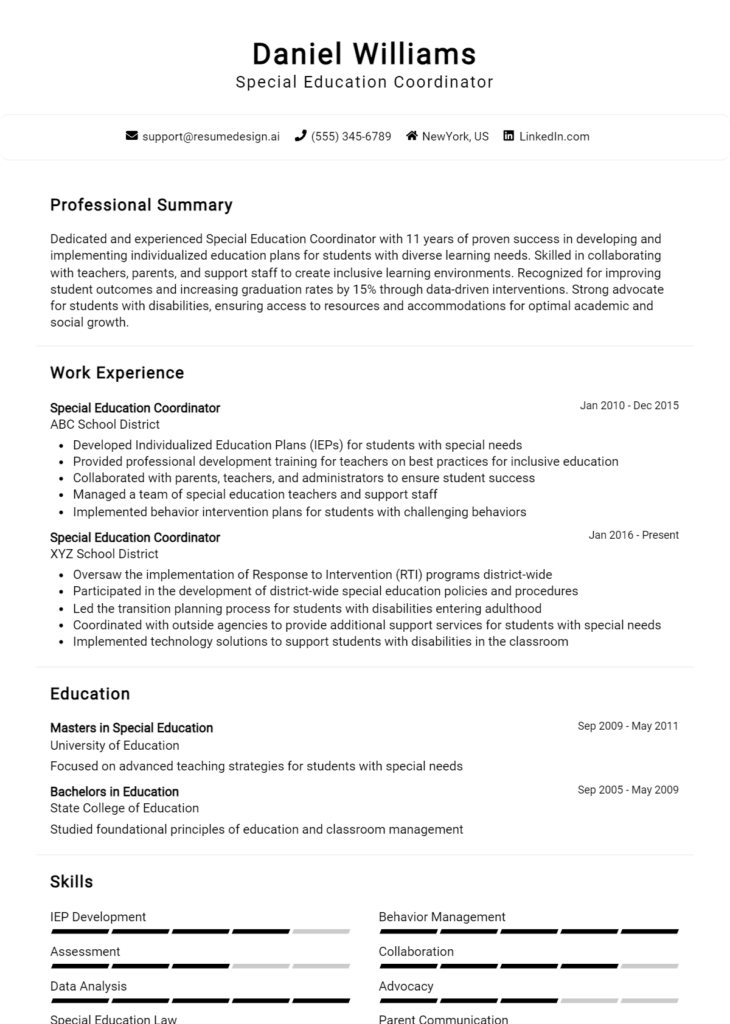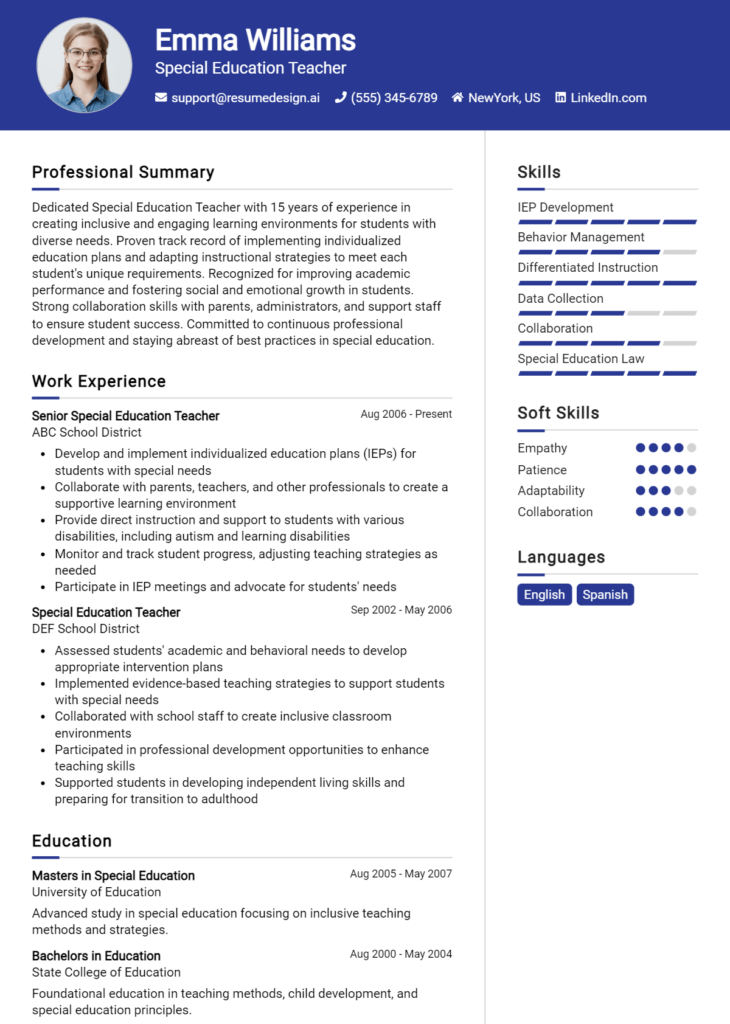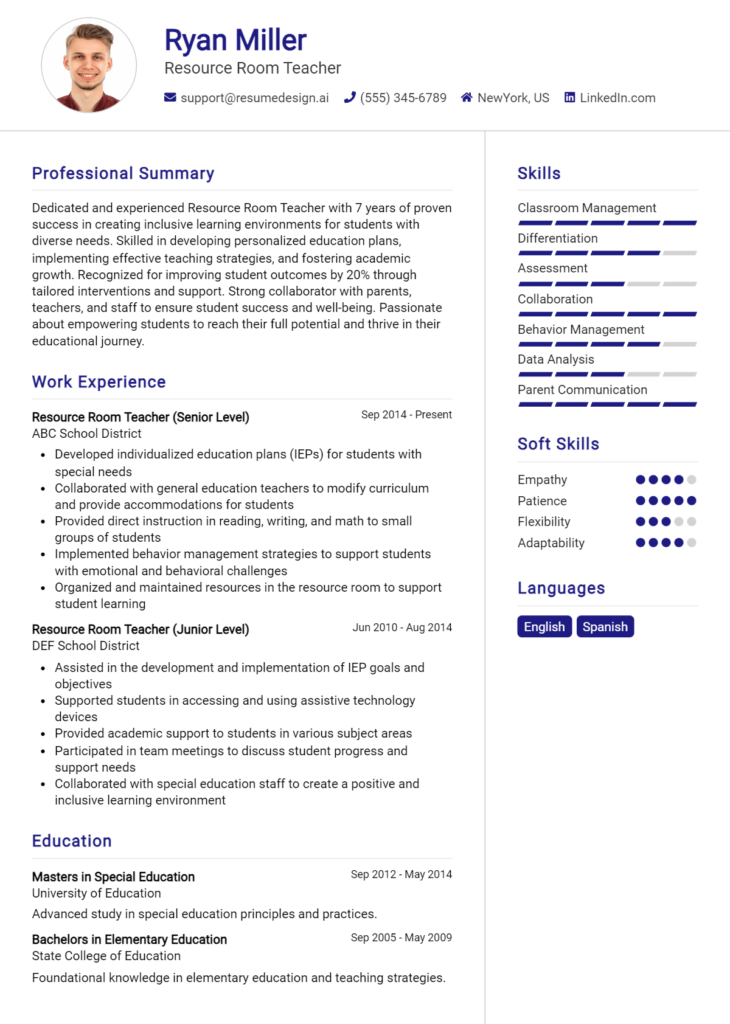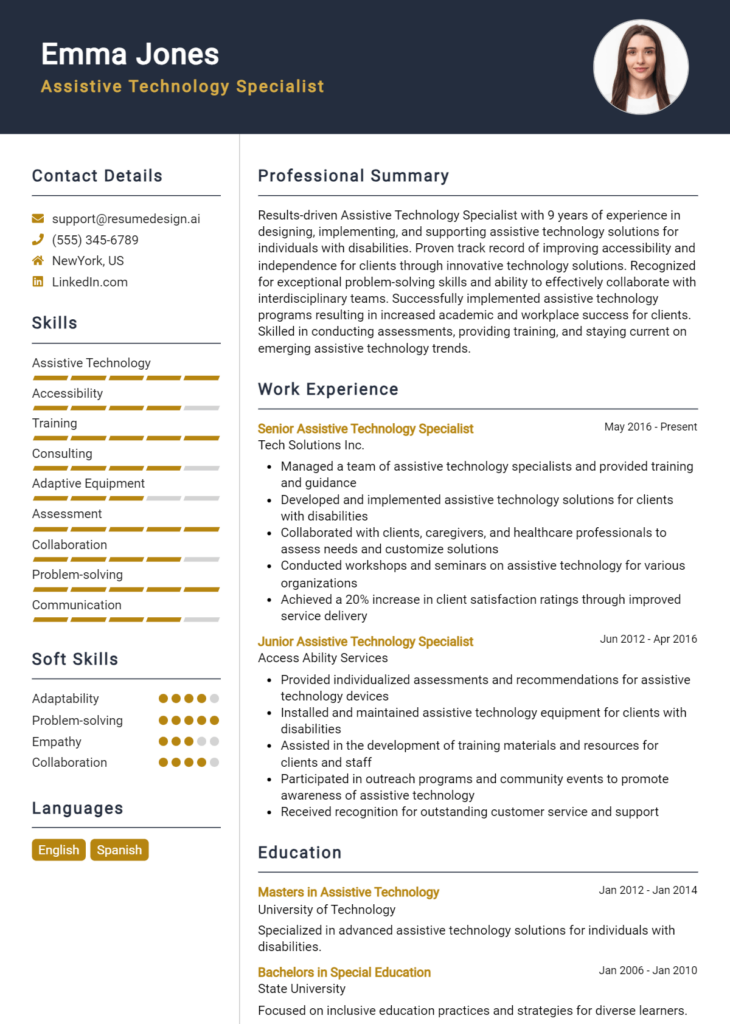Inclusion Specialist Core Responsibilities
An Inclusion Specialist plays a critical role in fostering diversity and promoting equitable practices within an organization. Key responsibilities include developing inclusive policies, conducting training sessions, and collaborating with various departments to ensure accessibility and representation. Essential skills encompass technical proficiency in diversity metrics, operational strategy for program implementation, and problem-solving capabilities to address issues effectively. A well-structured resume that highlights these competencies can significantly contribute to the organization's overall inclusivity goals.
Common Responsibilities Listed on Inclusion Specialist Resume
- Develop and implement diversity and inclusion initiatives.
- Conduct assessments and audits to evaluate inclusivity practices.
- Facilitate workshops and training sessions on diversity awareness.
- Collaborate with HR to create equitable hiring practices.
- Monitor and report on diversity metrics and outcomes.
- Provide guidance on inclusive communication strategies.
- Advocate for underrepresented groups within the organization.
- Serve as a resource for conflict resolution and mediation.
- Engage with community organizations to promote outreach.
- Develop educational materials that promote diversity.
- Stay informed on best practices and legal requirements related to inclusion.
- Evaluate the effectiveness of inclusion programs and make recommendations for improvement.
High-Level Resume Tips for Inclusion Specialist Professionals
In today's competitive job market, a well-crafted resume is crucial for Inclusion Specialist professionals aiming to make a lasting impression on potential employers. As the first point of contact in the hiring process, your resume must showcase not only your skills and experience but also your commitment to fostering inclusivity and diversity in various environments. A strong resume will effectively communicate your achievements and qualifications, setting you apart from other candidates. This guide offers practical and actionable tips specifically tailored for Inclusion Specialist professionals, helping you create a resume that resonates with hiring managers and reflects your unique contributions to the field.
Top Resume Tips for Inclusion Specialist Professionals
- Tailor your resume to the job description by incorporating relevant keywords and phrases that align with the specific role.
- Highlight your relevant experience in diversity and inclusion initiatives, detailing specific projects or programs you've led or contributed to.
- Quantify your achievements by using metrics to demonstrate the impact of your work, such as improvements in workplace diversity or employee engagement scores.
- Showcase your industry-specific skills, such as cultural competency, conflict resolution, and training facilitation, to highlight your expertise.
- Use action verbs to describe your responsibilities and accomplishments, making your contributions clear and impactful.
- Incorporate testimonials or quotes from colleagues or supervisors that speak to your effectiveness in fostering an inclusive environment.
- Keep your resume concise and focused, ideally one page, to ensure that hiring managers can quickly grasp your qualifications.
- Include professional development activities, such as workshops or certifications in diversity and inclusion, to demonstrate your commitment to ongoing learning.
- Make sure your resume is visually appealing and easy to read, using clear headings and a clean layout to enhance readability.
By implementing these tips, you can significantly increase your chances of landing a job in the Inclusion Specialist field. A thoughtfully crafted resume will not only highlight your qualifications but also convey your passion for creating inclusive environments, making you a standout candidate in the eyes of employers.
Why Resume Headlines & Titles are Important for Inclusion Specialist
The role of an Inclusion Specialist is pivotal in fostering an inclusive and equitable environment within organizations. A well-crafted resume headline or title serves as the first impression for hiring managers, allowing candidates to succinctly summarize their key qualifications and expertise in a single impactful phrase. This headline should be concise, relevant, and directly aligned with the job description, making it easier for recruiters to recognize the candidate’s suitability for the role at a glance. A strong headline can immediately capture attention and encourage further reading of the resume, setting the stage for the candidate’s strengths and experiences to shine through.
Best Practices for Crafting Resume Headlines for Inclusion Specialist
- Keep it concise—aim for one impactful phrase or sentence.
- Ensure relevance—tailor the headline to the specific Inclusion Specialist role.
- Highlight key skills—focus on essential competencies like cultural competence or program development.
- Use strong action words—incorporate verbs that convey leadership and initiative.
- Showcase accomplishments—if possible, hint at quantifiable achievements.
- Avoid jargon—use clear, straightforward language that is easily understood.
- Position it prominently—place the headline at the top of the resume for maximum visibility.
- Be authentic—ensure your headline genuinely reflects your experience and aspirations.
Example Resume Headlines for Inclusion Specialist
Strong Resume Headlines
Transformative Inclusion Specialist with 5+ Years in Diversity Program Development
Dedicated Advocate for Equity and Inclusion in Educational Settings
Results-Driven Inclusion Specialist Committed to Fostering Workplace Diversity
Weak Resume Headlines
Professional looking for opportunities
Resume of an Inclusion Specialist
Strong headlines are effective because they clearly communicate the candidate's unique value proposition and area of expertise, making them stand out in the competitive job market. They utilize specific language that conveys competence and a results-oriented mindset, which resonates with hiring managers. In contrast, weak headlines fail to impress because they lack specificity and do not provide any insight into the candidate’s qualifications or strengths. Vague phrases like "Professional looking for opportunities" do not convey any actionable information or competitive advantage, which diminishes the overall impact of the resume.
Writing an Exceptional Inclusion Specialist Resume Summary
A well-crafted resume summary is crucial for an Inclusion Specialist, as it serves as the first impression on hiring managers who are seeking candidates with specific expertise in fostering inclusive environments. This brief yet impactful section should effectively capture attention by highlighting key skills, relevant experience, and notable accomplishments that align with the job role. A strong summary is not only concise but also tailored to the specific position, ensuring that it resonates with the priorities and expectations of the employer.
Best Practices for Writing a Inclusion Specialist Resume Summary
- Quantify Achievements: Use numbers and specific metrics to demonstrate your impact in previous roles.
- Focus on Relevant Skills: Highlight skills that are directly related to inclusion, diversity, and equity.
- Tailor for the Job Description: Customize your summary to reflect the specific requirements and responsibilities listed in the job posting.
- Use Action-Oriented Language: Start sentences with powerful verbs to convey a sense of proactivity.
- Highlight Unique Qualifications: Include any certifications, training, or unique experiences that set you apart.
- Be Concise: Keep your summary to 2-3 sentences for maximum impact.
- Showcase Collaborative Experience: Emphasize your ability to work with diverse groups and facilitate conversations around inclusion.
- Maintain a Professional Tone: Ensure that the language used is formal yet approachable, reflecting your professionalism.
Example Inclusion Specialist Resume Summaries
Strong Resume Summaries
Dedicated Inclusion Specialist with over 5 years of experience implementing diversity training programs that increased employee engagement by 40%. Proven track record in collaborating with cross-functional teams to create a more inclusive workplace culture.
Results-driven Inclusion Advocate skilled in developing strategic initiatives that improved minority recruitment by 30%. Expertise in conducting workshops that foster understanding and promote inclusiveness within organizations.
Accomplished Inclusion Specialist with a Master’s degree in Social Justice Education, leading to a 25% reduction in workplace discrimination complaints over two years. Adept at using data-driven approaches to assess and enhance diversity efforts.
Weak Resume Summaries
Experienced in various inclusion-related tasks and projects.
Looking to leverage my skills to help create a better workplace environment.
The strong resume summaries are effective because they include specific achievements, quantifiable results, and relevant skills that directly align with the role of an Inclusion Specialist. They provide a clear picture of the candidate's capabilities and contributions. Conversely, the weak summaries lack detail, are vague, and do not convey a clear understanding of the candidate's qualifications or impact, making them less appealing to hiring managers.
Work Experience Section for Inclusion Specialist Resume
The work experience section of an Inclusion Specialist resume is vital as it serves as a testament to the candidate's expertise and contributions in the field of inclusion and diversity. This section not only highlights technical skills but also demonstrates the candidate’s ability to manage teams and deliver high-quality initiatives that foster inclusivity. By quantifying achievements and aligning experiences with industry standards, candidates can effectively communicate their impact and suitability for the role, showcasing their potential to drive meaningful change within an organization.
Best Practices for Inclusion Specialist Work Experience
- Focus on quantifiable results by including metrics, percentages, or specific outcomes achieved.
- Highlight technical skills relevant to inclusion practices, such as knowledge of diversity training programs or accessibility standards.
- Showcase leadership experiences where you managed or guided teams towards achieving inclusion goals.
- Emphasize collaboration with cross-functional teams to illustrate teamwork and shared successes.
- Tailor experiences to align with industry standards and job descriptions to demonstrate relevance.
- Use action verbs to convey impact and drive in your contributions.
- Include professional development or certifications that showcase ongoing learning in inclusion practices.
- Document any recognition or awards received for innovative inclusion initiatives.
Example Work Experiences for Inclusion Specialist
Strong Experiences
- Led a team of 10 in developing and implementing a comprehensive diversity training program, resulting in a 30% increase in employee engagement scores within one year.
- Collaborated with HR to redesign recruitment strategies, which improved the hiring of underrepresented groups by 25% over two years.
- Managed a cross-departmental initiative that enhanced accessibility in the workplace, receiving recognition from industry peers for innovation in inclusivity practices.
- Conducted workshops for over 200 employees, leading to a measurable 40% increase in awareness and understanding of inclusion policies across the organization.
Weak Experiences
- Assisted in diversity training sessions.
- Worked on team projects related to inclusion.
- Participated in meetings regarding inclusion initiatives.
- Helped with employee engagement activities.
The examples categorized as strong showcase clear, quantifiable outcomes and specific contributions that highlight leadership and collaboration. In contrast, the weak experiences lack detail and measurable impact, making them less compelling and failing to demonstrate the candidate’s true capabilities in fostering inclusion. Strong experiences effectively illustrate the candidate’s role in driving change, while weak experiences appear vague and do not provide a clear picture of the candidate's contributions.
Education and Certifications Section for Inclusion Specialist Resume
The Education and Certifications section of an Inclusion Specialist resume is crucial in showcasing a candidate's academic background and professional qualifications. This section not only highlights the educational achievements that support a candidate's expertise in fostering inclusive environments but also underscores any industry-relevant certifications and ongoing learning efforts. By detailing relevant coursework, specialized training, and recognized certifications, candidates can greatly enhance their credibility and demonstrate alignment with the job role, showcasing their commitment to inclusion and diversity in educational or organizational settings.
Best Practices for Inclusion Specialist Education and Certifications
- Prioritize relevant degrees in fields such as Education, Social Work, or Psychology.
- Include industry-recognized certifications, such as Certified Inclusion Professional (CIP) or Diversity and Inclusion Certificate.
- List specific coursework that directly relates to inclusion strategies, special education, or cultural competence.
- Highlight any ongoing professional development or workshops attended related to inclusion practices.
- Ensure that all entries are up-to-date and reflect current best practices in the field.
- Use clear and concise language to describe qualifications, avoiding jargon that may not be recognized by all employers.
- Consider including GPA or honors if they are particularly impressive and relevant to the role.
- Tailor the education section to align with the job description, emphasizing the most pertinent qualifications.
Example Education and Certifications for Inclusion Specialist
Strong Examples
- M.A. in Special Education, University of XYZ, 2021
- Certified Inclusion Professional (CIP), Inclusion Institute, 2022
- Coursework in Cultural Competence and Inclusive Teaching, University of XYZ
- Training in Restorative Practices, National Restorative Justice Organization, 2023
Weak Examples
- B.A. in History, University of ABC, 2005
- Certification in Basic First Aid, Red Cross, 2019
- Coursework in General Psychology, University of ABC
- Diploma in Office Administration, Community College of DEF, 2010
The examples provided highlight the distinction between strong and weak qualifications for the Inclusion Specialist role. Strong examples demonstrate a direct relevance to inclusion practices and a commitment to ongoing professional development in the field, showcasing how the candidate has prepared to meet the demands of the role. In contrast, weak examples illustrate educational qualifications and certifications that either lack relevance to the position or are outdated, failing to align with the core responsibilities of an Inclusion Specialist.
Top Skills & Keywords for Inclusion Specialist Resume
An Inclusion Specialist plays a vital role in fostering an environment of equity and accessibility within educational or organizational settings. Crafting a compelling resume for this position hinges significantly on the inclusion of relevant skills. Highlighting both soft and hard skills not only showcases your qualifications but also demonstrates your commitment to creating inclusive spaces. A well-rounded skill set can resonate with potential employers, illustrating your ability to navigate complex social dynamics, implement effective strategies, and collaborate with diverse teams. For a comprehensive understanding of how to present your skills and work experience, it is essential to thoughtfully curate your resume.
Top Hard & Soft Skills for Inclusion Specialist
Soft Skills
- Empathy
- Active Listening
- Communication
- Conflict Resolution
- Cultural Competence
- Adaptability
- Collaboration
- Problem Solving
- Patience
- Advocacy
Hard Skills
- Knowledge of Educational Legislation (e.g., IDEA, ADA)
- Curriculum Development
- Data Analysis
- Diversity Training
- Policy Development
- Accessibility Standards
- Program Evaluation
- Facilitation Skills
- Language Proficiency (e.g., ASL, Spanish)
- Technology Proficiency (e.g., assistive technology)
Stand Out with a Winning Inclusion Specialist Cover Letter
I am excited to apply for the Inclusion Specialist position at [Company Name], as advertised on [where you found the job posting]. With a robust background in educational equity and a passion for promoting inclusive practices, I am eager to contribute to your team and support the diverse needs of all students. My experience in creating and implementing programs that foster an inclusive environment aligns perfectly with your commitment to ensuring that every individual feels valued and empowered.
In my previous role at [Previous Company/Organization], I successfully developed and led initiatives aimed at increasing accessibility for students with diverse learning needs. By collaborating with educators, parents, and community organizations, I was able to design tailored strategies that enhanced the educational experience for all. My ability to facilitate workshops and training sessions has not only educated staff on best practices but has also cultivated a culture of inclusivity that encourages open dialogue and mutual respect among students and faculty alike.
I am particularly drawn to [Company Name] because of your innovative approach to inclusion and your dedication to continuous improvement. I am eager to bring my skills in data analysis and program evaluation to assess the effectiveness of your existing initiatives and identify areas for growth. Additionally, my strong communication and interpersonal skills will help build relationships across various stakeholders, fostering a collaborative atmosphere that supports both students and staff in achieving their goals.
Thank you for considering my application. I am enthusiastic about the opportunity to work with [Company Name] as an Inclusion Specialist and contribute to creating a welcoming and supportive environment for all. I look forward to the possibility of discussing how my background, skills, and passion for inclusion can align with your mission to make a positive impact in the community.
Common Mistakes to Avoid in a Inclusion Specialist Resume
When crafting a resume for the role of an Inclusion Specialist, it's crucial to present your qualifications and experiences effectively to stand out in a competitive job market. However, many applicants make common mistakes that can undermine their chances of landing an interview. By avoiding these pitfalls, you can ensure your resume highlights your skills in promoting diversity, equity, and inclusion within educational or workplace environments.
Lack of Relevant Keywords: Failing to include specific terms related to inclusion, such as "diversity training," "cultural competency," or "accessibility," can make your resume less likely to pass through applicant tracking systems (ATS) that many employers use.
Vague Job Descriptions: Providing generic job descriptions without detailing specific responsibilities or achievements can give the impression that you lack experience. Be sure to quantify your accomplishments with metrics when possible.
Ignoring Soft Skills: Inclusion Specialists need strong interpersonal skills. Omitting soft skills like empathy, communication, and teamwork can create a one-dimensional view of your capabilities.
Overloading with Jargon: While it's important to demonstrate expertise, using too much industry jargon can alienate hiring managers who may not be familiar with specific terms or acronyms.
Neglecting Professional Development: Not mentioning relevant certifications, training, or ongoing education in diversity and inclusion can indicate a lack of commitment to personal growth in this field.
Inconsistent Formatting: A cluttered or inconsistent resume layout can make it difficult for hiring managers to navigate your qualifications. Aim for a clean, professional format that enhances readability.
Focusing Solely on Past Roles: While past experience is crucial, failing to highlight future contributions or your vision for fostering inclusion in a new role can leave your resume feeling static.
Omitting Volunteer Work or Advocacy: Many Inclusion Specialists gain valuable experience outside traditional roles. Not including relevant volunteer work or community advocacy efforts can overlook significant contributions to diversity and inclusion initiatives.
Conclusion
As we wrap up our discussion on the vital role of Inclusion Specialists, it’s essential to recognize the key competencies and experiences that make a candidate stand out. Inclusion Specialists play a crucial role in fostering diversity, equity, and inclusion within organizations. They are responsible for developing strategies to create inclusive workplaces, conducting training sessions, and ensuring that all employees feel valued and represented.
Key skills for Inclusion Specialists include strong interpersonal communication, cultural competency, analytical thinking, and a deep understanding of diversity-related issues. Additionally, having a track record of implementing successful inclusion programs can significantly enhance your appeal to potential employers.
To ensure your resume reflects these attributes effectively, we encourage you to review and refine your Inclusion Specialist Resume. Highlight your relevant experiences, skills, and accomplishments to make a compelling case for your candidacy.
To assist you in this process, consider utilizing various tools available at your disposal. Explore our resume templates to find a design that suits your professional style. Use the resume builder to create a polished and tailored resume effortlessly. Looking for inspiration? Check out our collection of resume examples to see how others in your field present their experiences. Don't forget the importance of a strong introduction; our cover letter templates can help you craft a persuasive cover letter that complements your resume.
Take action today to enhance your resume and position yourself as a prime candidate for your next Inclusion Specialist role!

